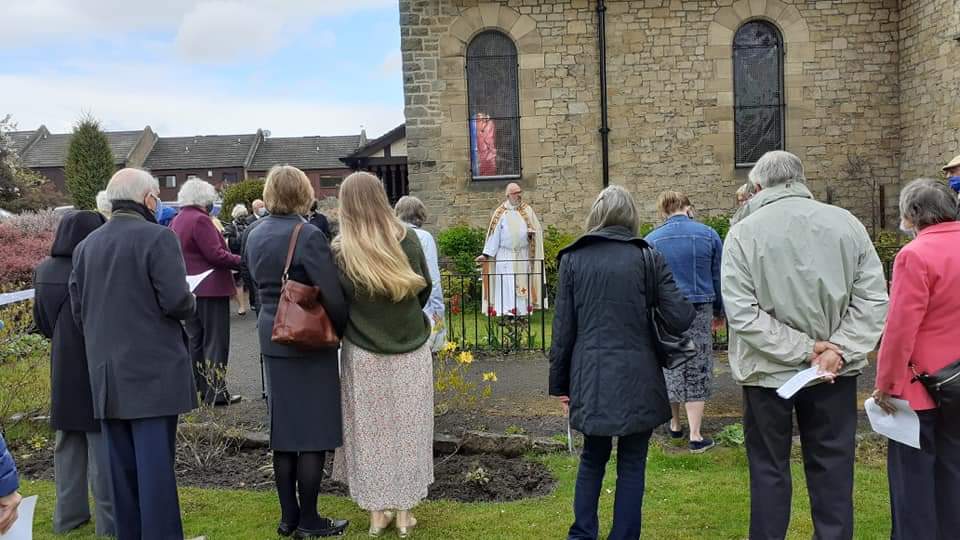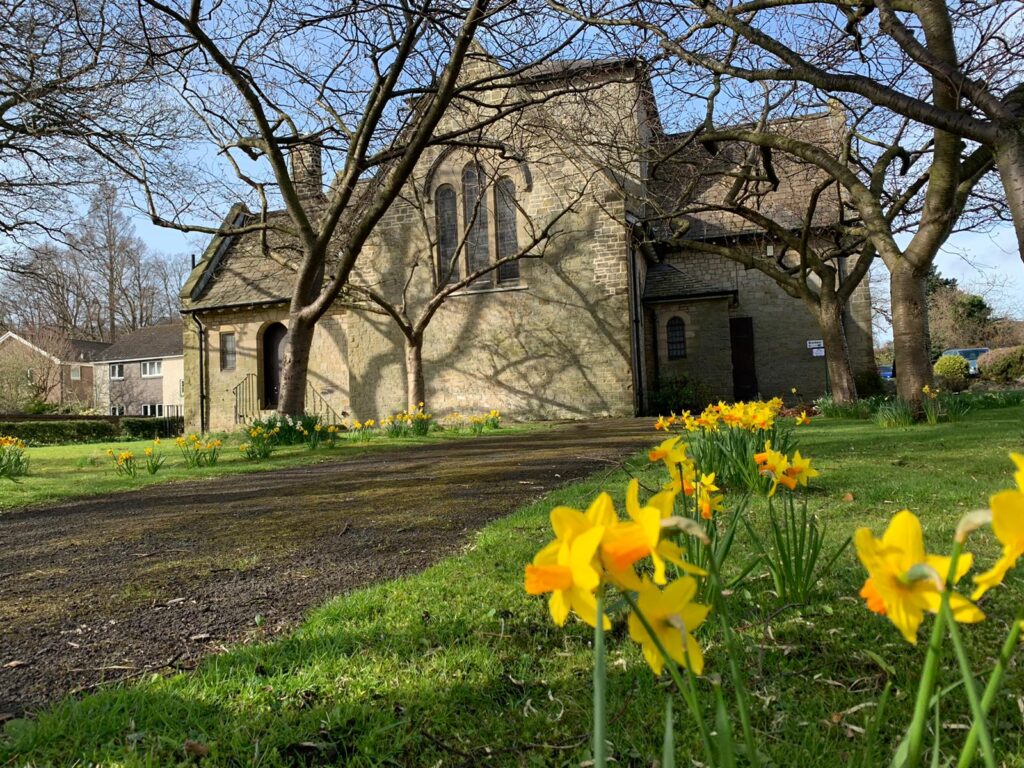+ ‘Earth, shout aloud to God the Lord… sing praises and rejoice’.

Today is Rogation Sunday, when for over a thousand years Christians have gone out and blessed the earth and the fields, as we will do later. It’s also a day when we have three readings and a psalm that bring together invisible things like love, faith and the Holy Spirit and physical, visible things like water, blood and kind actions. Our faith brings together the visible and the invisible, which is not surprising since we follow a man who is also the Son of God. For Christians the visible and the invisible go together.
In politics this is not so, unless you count the wheeling and dealing behind closed doors as ‘invisible’. Politics generally deals in material things and last week was not a calm or easy week for politics in Scotland. Among the problems leading up to it was the Scottish Government’s recognition that their plans to decarbonise the economy were unrealistic and the necessity to backtrack on two of their policies which looked like they were saving the environment but were actually penalising poor rural communities – banning fishing in seas to the West of Scotland and banning wood-burners in new-build properties (I’m not convinced they have back-tracked on that yet). This is not the place to go into the details but it does show that planning to protect the environment is not simple, even if it is worth doing.
Our Scottish Episcopal Church net zero policy is already hitting similar problems, but we are in an ecological crisis and we need to face it and take action. Here at Holy Cross we have already set up an Eco-Group (join it…) and signed up to Eco-congregation. But what we have discovered is that we are already doing a lot for the environment, for example by our productive garden, composting, trees, recycling and even our efficient boilers. But my impression is that the Churches tend to just pick up the secular language of environmentalism and not engage with Christian teaching on creation, which is far more radical. They swither between the fluffy bunny approach which focusses on protecting the prettier bits of creation and the darker aspects of the Green movement which cultivate despair and a hatred for humanity.

To go around blessing our grounds may seem a small thing but actually it is quite profound. It creates harmony and brings together the visible and the invisible, God and his creation. It unites nature and praise, but also teaches us.
The first part of our rogation prayers invokes God the Holy Trinity, the creator and renewer of the earth. The universe and our tiny planet was all created by God out of nothing. It is true that today’s main scientific theory, popularly called the Big Bang theory, suggests that the universe had a beginning and supports this but even when science or Greek philosophy suggested that the universe was always there, the Church has always taught that the universe had a beginning. God creates from nothing.
But why is there something rather than nothing? The answer to this question, which atheists don’t want you to ask, is that God is love, the Holy Trinity is a communion of love, and love freely flows outwards – in this case in creation. For Christians God’s action doesn’t stop in lighting the blue touchpaper and letting creation take its course. In the rogation prayers we say that in God we ‘live and move and have our being’. Everything is held in being by God’s creative love and power. If God forgot the universe, it would cease to exist. God sustains by his love.
This means that our prayer and contemplation is not just about us and God. It’s much bigger than that. When we look at any bit of creation, whether a beautiful flower or even a bit of slime, we know that it is held in being by God’s creative love and we can see God in it and through it. This means that the destiny of all creation is praise, which means being totally focussed on and transformed by God. This is what happens to the bread and wine in the Eucharist, but todays psalm applies it to all creation: ‘Earth, shout aloud to God the Lord… sing praises and rejoice’. When Mary said ‘yes’ to the angel and conceived Jesus, she united the visible and the invisible and brought this praise down from heaven into the world of material creation. As I said in the magazine, May is Mary’s month and it is no coincidence that, in this northern hemisphere, it is a month of spring and new life in nature.
So, our faith gives a depth to our care for creation and an urgency, because the desecration of nature is an offence to God’s praise just as much as killing an angel would be. Politics is complicated, and the rights of people and communities must be respected as we care for the earth because we are part of creation. But it should be possible for all people of good will to work together. Christians, however, have a special insight which comes with a responsibility, so, finally, we can say: ‘We pray for a blessing on this good earth, that it may be fruitful… bless our common life and our care for our neighbour.. that in harmony we may praise our Creator’.

